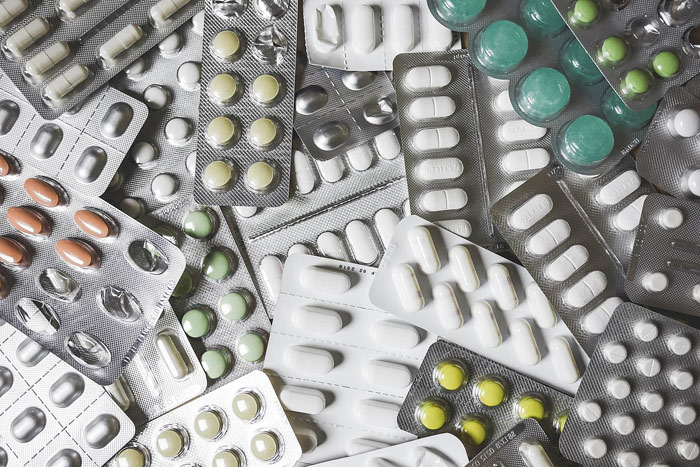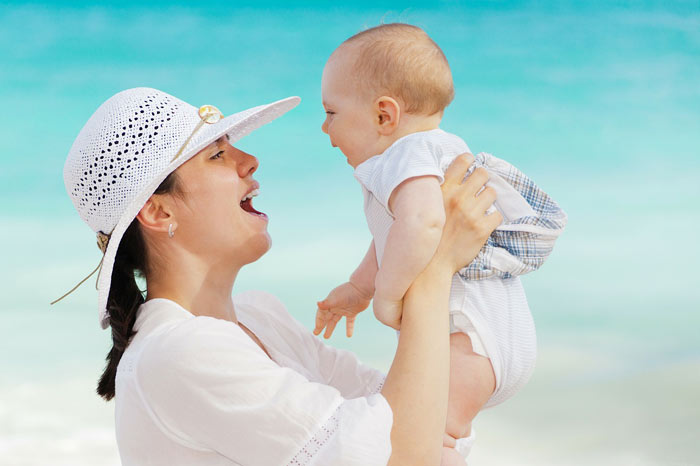Treating postnatal depression with CBD
It would have once been scorned upon to suggest giving cannabis to new mothers, but the medicinal use of the herb has become somewhat more common thanks to cannabidiol (CBD) products. It’s cannabis, but not as most people know it – CBD has no psychoactive properties and produces only therapeutic benefits.

There are many unforeseen challenges to motherhood, especially the first time around, that can affect anybody. We saw just recently that legendary tennis player Serena Williams has been suffering with postnatal depression after the birth of her first child. Postnatal (or postpartum) depression is worryingly prevalent, affecting up to 15 percent of mothers according to a 2009 study.
In this post, we’ll explore why some new moms are finding genuine relief from the various stresses and problems of being a parent through non-intoxicating medical cannabis.
Motherhood and depression
While nobody believes that being a mother is going to be a walk in the park, many don’t anticipate the feelings of inferiority that can set in and gnaw away at the psyche when trying to care for a new-born. Constant feelings of not being good enough or doing something wrong can be very damaging for mental health, and even blow up into a full-scale major depressive disorder.
Depression is a draining mental illness, that chips away at mood, self-esteem and desire to do anything – this has a compounding effect, with a lack of productivity often fuelling further negative thoughts. Brain scans have shown that people with major depression experience brain inflammation and chemical changes to the brain, hence why it’s not possible to just “snap out” of a mental slump.
However, with the correct tools, an improved mental wellbeing can be achieved, and cannabis compound CBD has been found to be active in two biological systems that regulate mood: the endocannabinoid system and the serotonin system.
CBD and the endocannabinoid system
The endocannabinoid system (ECS) is somewhat unconventional in that it regulates emotional and physical health via cannabinoid receptors. This makes CBD quite powerful, as its role is to oversee all the functions in the ECS, and modulate them by tweaking receptors, enhancing endocannabinoid signalling and switching off enzymes that break down endocannabinoids like the FAAH enzyme.
CBD indirectly influences both primary cannabinoid receptors in the ECS, but the antidepressant effects come from influencing neurological pathways connected to CB1 receptors. These receptors have a confirmed link to mood and are the binding point for the ‘bliss molecule’ anandamide. This endocannabinoid andneurotransmitter help manage brain imbalances that look to at least partially cause long-term episodes of major depression.
Much more research is needed on CBD and the serotonin system, although there are indications that the cannabinoid is an agonist of the obscure 5-HT1A receptor, which scientists have previously looked into as a target area for anxiety and depression.
What makes CBD preferable to prescription antidepressants?

The obvious treatment for those with depression is antidepressant medication, but there are strong arguments for not taking Zoloft and other selective serotonin reuptake inhibitors (SSRIs). Side effects from this class of drugs include nausea, insomnia and more serious issues like depersonalization and a loss of identity. Especially for a new mother who needs to be dependable, prescription antidepressants can be more trouble than they are worth. There are also doubts about their effectiveness at treating anything more than short-term depression, although studies are divided on the overall value of SSRIs.
The key upside with CBD compared to SSRIs for a new mom is that side effects with the former appear to be minimal. In small doses, CBD can increase alertness in addition to enhancing mood, which helps with staying present. CBD can induce drowsiness when taken in greater amounts, although no quantity of CBD will impair short-term memory or inhibit cognitive function.
How could a new mother consume CBD?
Cannabis is perhaps still most associated with smoking, although this is clearly not an advisable thing for any mother to be doing around their child. Thankfully, innovation means that for many medicinal cannabis users, smoking is an act lost to history. However, there is significant value in inhaling CBD by vaping it, as this method has the fastest speed of delivery in terms of getting CBD active in the body. The quick mental pick-me-up that comes from drawing on toasty, therapeutic vapor is ideal for breaking up a depressive episode.
New moms who haven’t vaped before would perhaps be best using CBD cartridges, as these are designed to release a specified quantity of CBD when drawing in. This is a perfect way of learning how the body responds to 10, 50 or 100mg of CBD. Some may find they only need a small amount of CBD for meaningful relief.
For those who have reservations about vaping – which is quite understandable for those who have never smoked or vaped – CBD oil, CBD gummy bears and CBD capsules are also good choices.
CBD oil is relatively fast-acting, as sublingual absorption allows the CBD to bypass the metabolization process that is unavoidable with edibles and capsules. However, gummy bears and capsules are advantageous in that the CBD remains active for about six hours – double what can be expected from vaping. However, the flipside to this is that the effects are not as intense. Capsules are suitable for new moms who don’t want to showcase to others that they are using a cannabis-based product – these are indistinguishable from any other soft gel capsules and are sold in an assortment of strengths.
CBD e-juice, edibles, tincture oils and edibles can all be beneficial, depending on the circumstances. It can take trial and error to find the optimum consumption method and dosage.

Is CBD safe?
The World Health Organization considers CBD to have “no abuse potential,” although no studies have been done on the effects that CBD has on breastfeeding mothers.
This article should only be considered as informational, and not a replacement for medical advice. If you have concerns about using CBD to help with postnatal depression, please get in touch with a doctor.
